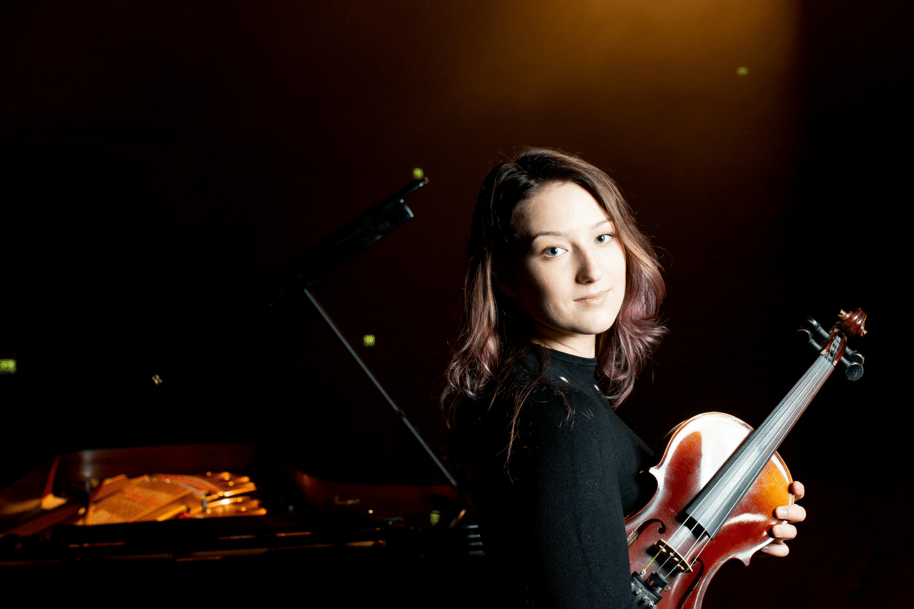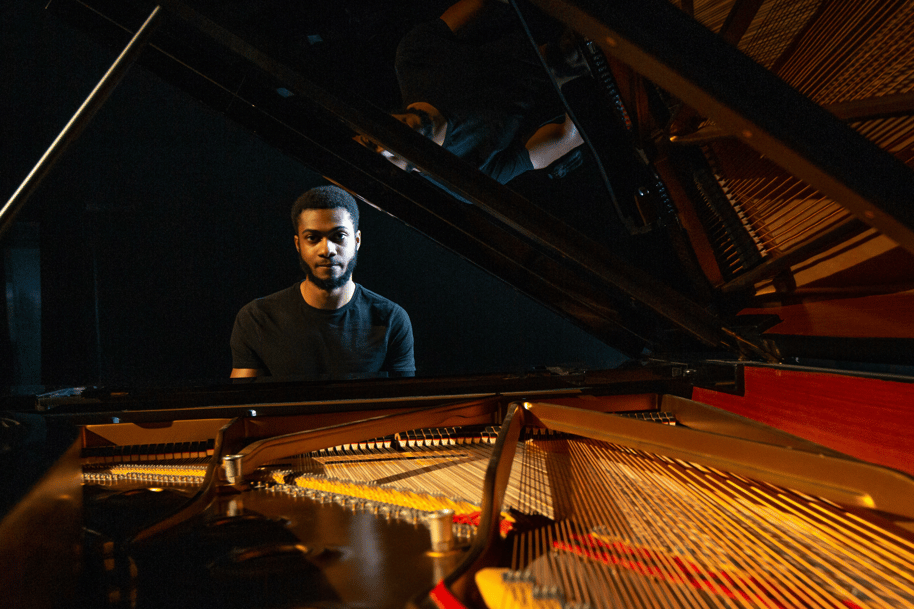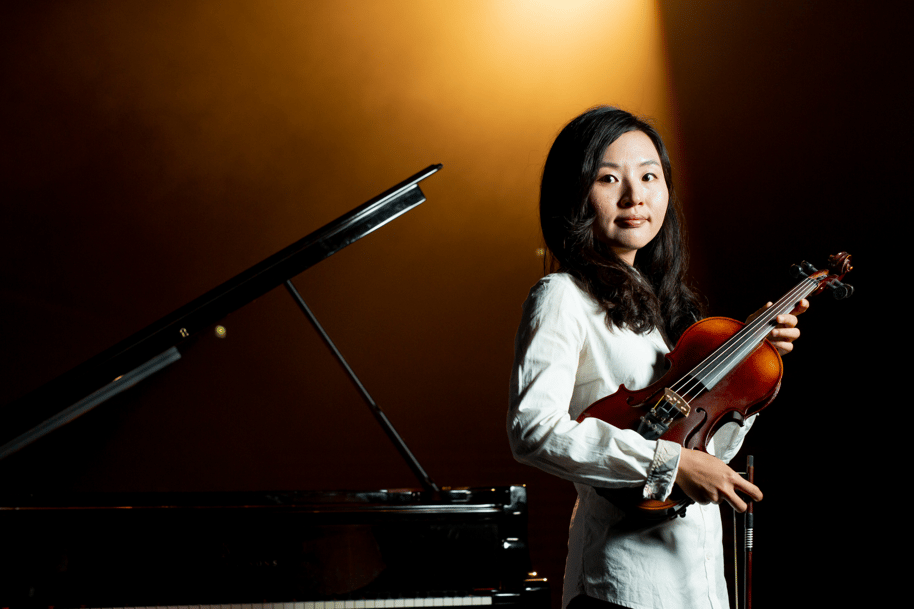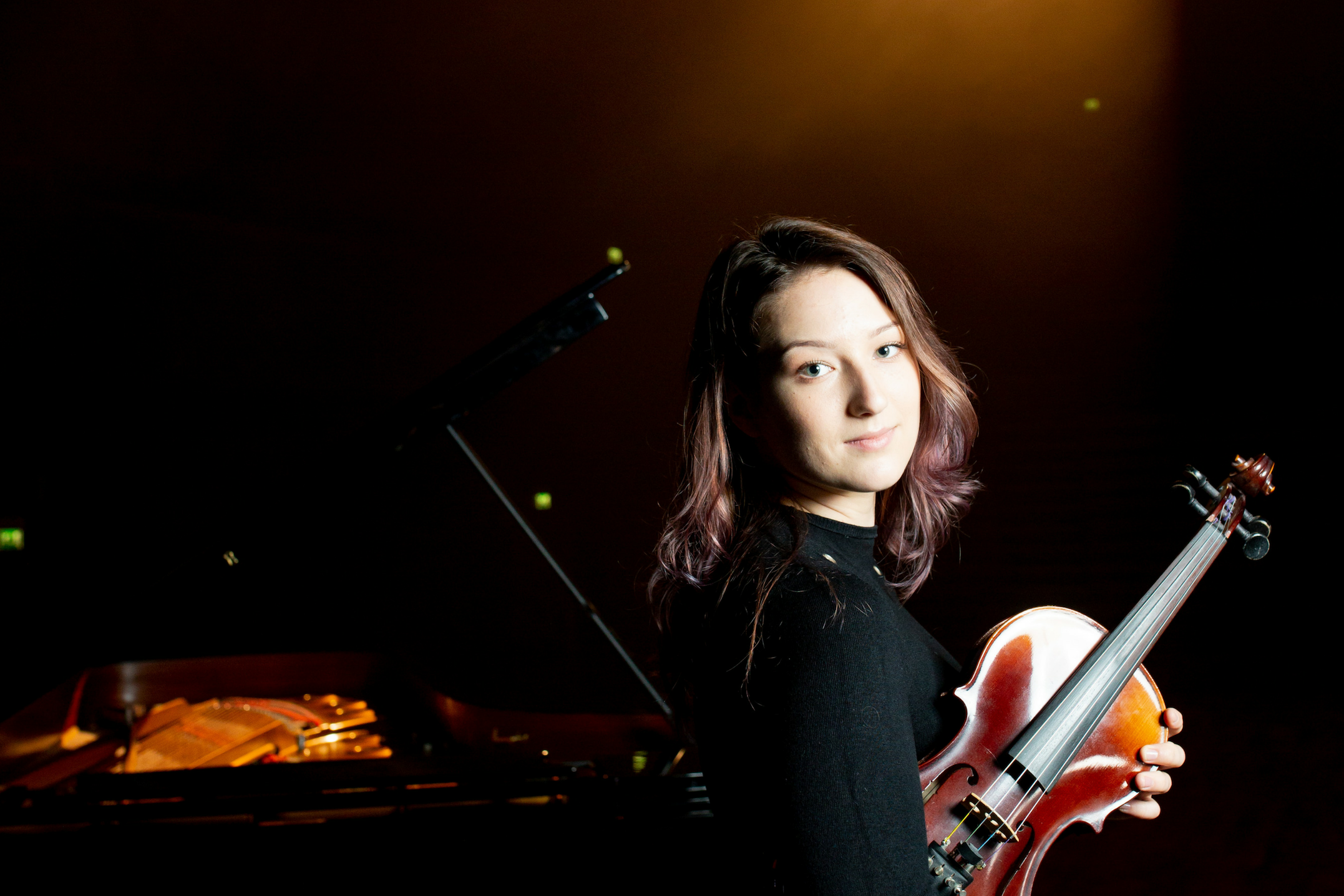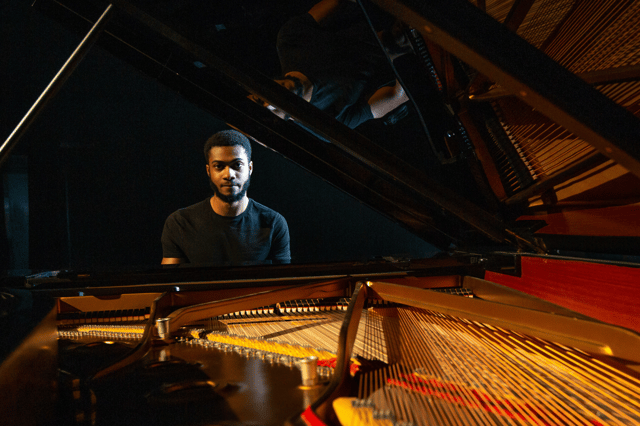Approaching Music Performance Diplomas – stagecraft
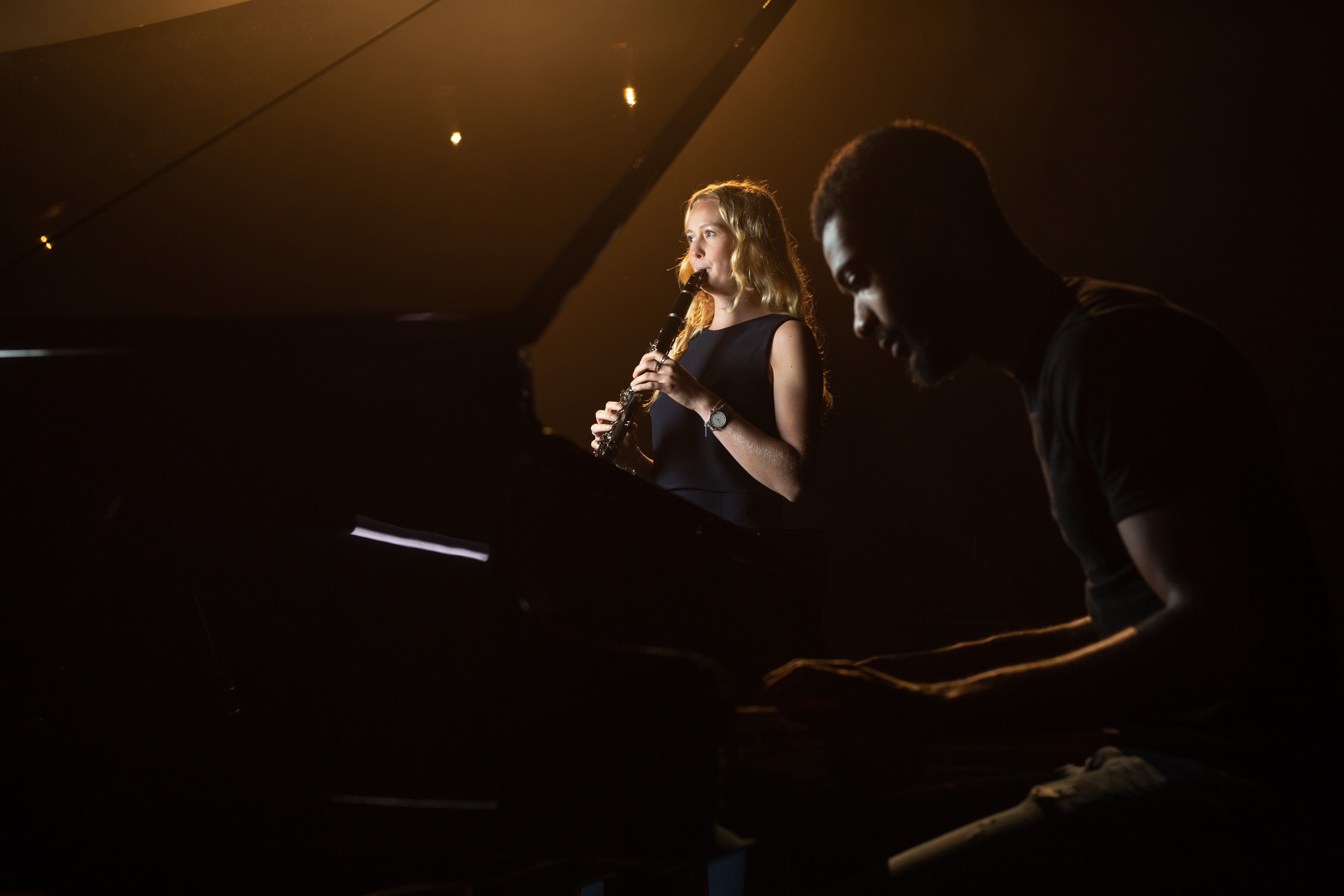
Stagecraft, the overall presentation of a recital, is included in the “musical sense and communication” component of the mark scheme of Trinity’s Performance Diplomas. In one of a series of articles prepared from a selection of advice from diploma specialists, we give advice for approaching this element of a performance.
The skill gap between Grade 8 and Diploma can feel like a big one to fill. Reference to the current syllabus will tell you that ATCL (Performance) should be of a similar standard to end of first year recital at a university or conservatoire.
In terms of technique and musicality this will be a long journey but there is another area to embrace which can be addressed straight away. A key area for a performance diploma is stagecraft, which forms part of the musical sense and communication element of the recital in the 2019 Performance Diplomas syllabus.
What is stagecraft? This is an umbrella term covering all the things a performer does regarding appearance, attitude and acknowledgement when presenting their work to others, and takes into account the overall presentation of the recital.
Think of a lunchtime recital or concert you have attended:
-
Did you feel compelled to watch and listen to them? If so, what did they do to achieve this?
-
Were you comfortable in their presence?
-
How were the performers dressed?
Or …
- Did you feel awkward?
- Was their body language distracting?
- Was your enjoyment of the music compromised?
It is quite extraordinary how these elements can affect performance both for the performers and the audience.
Appearance
Let’s take appearance. How we dress says a lot about us and we can use clothes to make different statements in everyday life. The same thing happens when you walk on stage – the only difference is, all eyes are on you! So, you want to feel both comfortable and special.
Comfortable allows instruments to be played with ease of movement and, for singers as well, without fidgeting or adjusting straps or belts or necklines or cuffs.
Special is how you should feel when performing and if you have made an extra effort to look your best, this is often reflected in what we’ll consider next – attitude.
Attitude
Attitude is a multi-faceted word. It has influence to before, during and after your Diploma performance:
-
How you approach preparation for the Diploma
-
Interaction with others both on stage and in the audience
-
How you reflect upon your Diploma experience.
Here, we’re really thinking about the second of these.
Taking the stage
Body language is crucial. Imagine someone walking onstage eyes down, head bent and gait tentative – what message does this send to an audience? Already they think this performer is unsure and apologetic. Now compare that with someone who walks confidently onstage with their head held high and their eyes bright and engaging. Is the audience now expecting a different experience?
Communication through body language remains paramount during performance: between performers, and between performer(s) and audience. Messages are continuously sent reflecting engagement with the music and the performance: the arching of a bow to initiate a phrase; the circling of an oboe to conclude a movement; a singer assuming a posture of readiness.
If the other performers are aware of these signs, so is the audience. As the centre of attention, your every movement is on display and should be considered. The appearance of confidence, whether an illusion or not, should be your goal throughout the recital. No matter how anxious you feel, your stage comportment should not betray your nerves. Badly executed page turns, constant flicking of hair and fidgeting serve only to compromise what may have been a technically proficient performance.
Acknowledgement
Acknowledgement is another area reliant on body language. In a large auditorium it is customary for performers to bow to their audience both at the beginning and end of a recital.
Why?
At the outset, a bow says, “Thank you for welcoming me to the stage and I hope to present you with a rewarding experience”; and, at the conclusion, “Thank you for listening and I hope you enjoyed the recital.”
-
Bows which are half-hearted serve no purpose other than to look awkward
-
Bows which are over-dramatic rather trivialise the performance
-
Bows executed with sincerity in their intent to deliver the appropriate sentiment
Sometimes, however, Diploma recitals take place in venues which are less spacious. Perhaps bowing does not feel appropriate: a measured nod of the head, genuinely meant, is perfectly sufficient to convey the necessary sentiments.
If in doubt about anything to do with stagecraft, it is always a good idea to ‘be your own audience’. Imagine looking at how you appear both when you are playing or singing and when you are not. Do you like what you see?
Above all – stagecraft is about learning to enjoy performing.
Tips
-
Take a moment to compose yourself before you play: this ‘breathing space’ at the start of your recital is vital, not just for you as the performer, but also for the examiner, preparing them and making them sensitive to the music they are about to hear
-
Likewise at the end of your recital, don’t hurry off the stage, but take time to acknowledge the examiner as you would an audience
-
Visualise yourself as a confident performer – you’ll be surprised how much a confident attitude reflects in your body language and overall performance

